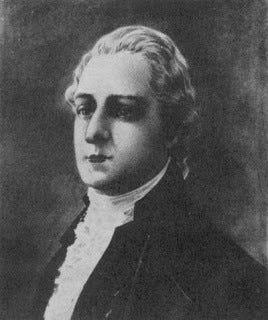Perfectionism: Creativity's Joyless Spoiler
You're not going to listen, are you?
Welcome to Writer Everlasting. This is the place where we lay it all out there and confess our frailties. This is the place where we celebrate our successes (without being boobs about it). This is the place where we leave our fears behind and get comfy with who we are. Who are we? We’re writers. Repeat after me: We’re writers.
“If your fidelity to perfectionism is too high, you never do anything”
David Foster Wallace
This is a tough one. How do you argue against perfectionism when you dearly want everything to be perfect? Writing is an art, a craft, a useful method of communicating. The act of writing is as natural to most of us as talking, but even with all of our lifetime experience, at the very moment we write something we know other people will be judging, our internal editor awakens, and, without even a yawn or a sip of coffee, plops down beside us, ready to inspect every word.
(Okay, I should have known. He’s here. One lousy paragraph and he’s here, lording it over me, pointing out where I’ve gone wrong. I’ve changed the wording of that single, stinking paragraph at least five times now and he’s still not satisfied!)
For a while there Voltaire’s phrase, “The perfect is the enemy of the good” got to be such a cliché we could recite it on cue the moment someone said the first two syllables– “The per — ”.
The phrase’s resurgence came when Barack Obama used it to explain why we would be foolish to wait for the perfect package when that other package might be within our grasp and might just have to be good enough. From there the pols and pundits ran with it and, voila! A cliché was born.
The truth is, just as the mediocre is the enemy of the good, so is the notion of the perfect. There is no such thing as perfect. Not in a world where humans tend to gather, anyway. We want the perfect hair, the perfect teeth, the perfect personality, the perfect spouse, the perfect kids, the perfect house, the perfect job, the perfect day in an otherwise perfect life.
We even want the perfect government, silly as that sounds. The first line of the Preamble to our Constitution says: “We the people, in order to form a more perfect union.” It doesn’t say “in order to form the most perfect union ever in all the world.” It says a more perfect union. It was clearly nothing more than wishful thinking on the part of those greenhorn founders, but all we see is “perfect” and we’ll never be satisfied until it happens — which of course it never will.
We grow up with the notion that anything printed on the pages of books, magazines or newspapers had to come from the minds of rare geniuses. We’re taught from our earliest school days to revere the written word; to expect perfection in anything published for public consumption, to strive for it our own little selves.
So it stands to reason that when we take on the task of writing the kinds of things other people — strangers, even — would want to read, we expect that they’re expecting to read something wonderful; something perfect. And why not? We would. We do. Readers are notoriously severe critics. Writer/readers are even worse.
But in the end we write because we have something we want to say. We want an audience — who doesn’t? But we really do it to please ourselves. If we didn’t do it to please ourselves we would be looking for something else to do.
So, enough with that word “perfect”. Let’s just scrap it and go for “pretty damned good”. Let’s stop pretending that the reason we can’t get anything done is because we’re such perfectionists we’ll drive ourselves crazy with the effort if we go much further (farther?).
Come on! I know I’m not the only one who goes there.
But don’t just listen to me. Anne Lamott (Bird by Bird, a pretty damned good book on writing) gets it just about (she’ll hate me for this) perfect:
“Perfectionism is the voice of the oppressor, the enemy of the people. It will keep you cramped and insane your whole life, and it is the main obstacle between you and a shitty first draft. I think perfectionism is based on the obsessive belief that if you run carefully enough, hitting each stepping-stone just right, you won’t have to die. The truth is that you will die anyway and that a lot of people who aren’t even looking at their feet are going to do a whole lot better than you, and have a lot more fun while they’re doing it.”
(Go to Brain Pickings here for a lovely piece by Maria Popova on Anne Lamott and her ideas on writing. It pains me to say this, but you’ll get far more out of reading Maria Popova’s piece than you ever did out of reading this one. I’m leaving the door open in case you want to come back and talk about it. Coffee’s on.)





So true. I'm glad that I'm not the only one who grew up believing that people who got their writing published were special geniuses, and therefore I shouldn't even imagine or want to be a writer as I wasn't good enough.
I loved this! I love Anne Lamott. Thanks for the reminders.